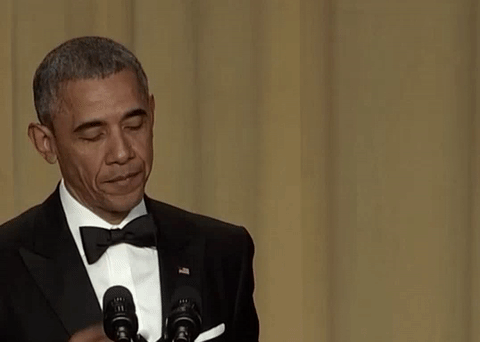Plumes With Attitude #1: Interview with Anne-Laure Le Cunff
This article below is the English translation of the Interview section of Plumes With Attitude: my personal newsletter showcasing the current best writing gigs in France. The content is in French but it shouldn’t be a problem if you know DeepL. Feel free to subscribe and spread the word! ✌️

“Dear makers, freelancers: don’t hide behind your creations. Your greatest strength is the passion that made you leave your job to work on what you love.”
Anne-Laure (a.k.a. @anthilemon) is an exceptional indie maker. In 2017, she left Google to create Ness Labs, a multidisciplinary studio focused on creativity and mental well-being. She lives in London and is studying at King’s College to obtain her MSc in Neuroscience. I am very fond of her new newsletter Maker Mind, which is a real gold mine for freelancers and makers. I’ve also been following her (hyper?) activity on Twitter or Product Hunt for a few years now. I had a lot of questions for her and I was looking forward to this first interview!
Hello Anne-Laure and thank you very much for accepting the invitation! I’m very curious to know more about your business. You describe yourself as an “indie maker”. I would have liked to know what difference you make between this term and “freelancer”?
For me, a freelancer provides a service to a customer. Being an indie maker means building your own product. But in practice, it is quite common to do both. For example, some freelancers become indie makers to automate their activity or solve a recurring problem encountered by their customers.
So you consider indie makers as a kind of evolution of freelancing?
Not necessarily. Indie makers share a common culture and philosophy, which are far from being incompatible with the codes of freelancing. I know a couple of nomadic makers who freelance half the year, then spend six whole months developing their product. Their goal is to reduce the number of months of freelancing over the years to be able to make a living from their project.
It’s funny, it reminds me of the “zebra” movement: start-ups like MailChimp or Basecamp that have freed themselves from traditional investors to grow.
It is a movement that I find exciting, and which I believe is far ahead of its time. And it is true that there are common roots with indie makers, such as the search for financial independence. The big difference is that indie makers often aspire to keep their business very small. Many even prefer to remain solo and work with freelancers or start-ups depending on their current projects. That’s what I’m doing with Ness Labs.
Among your various projects, I was particularly impressed by Make & Shine: a book on personal branding for makers. What motivated you to embark on this writing project?
As I used to work in marketing at Google, I was often asked for my opinion on a landing page, on copywriting or on the relevance of a social media strategy. After hearing the same questions over and over again, I thought a good solution would be to compile all my recommendations into one guide. And seeing its success, I realized that it was not at all a niche subject as I had imagined.
You have always been very active on social media. Can you tell us more about your approach?
Twitter is like my “public workshop”: I tweet my progress on my projects, I share my readings, I ask questions and answer others. I also chat via DMs but prefer to continue the conversation on Telegram. If Twitter is like a workshop to me, Telegram is my living room. It is like a space where I feel comfortable having deep and sincere discussions with the guests I receive. And finally, there’s Product Hunt, which is like my TV: it’s a backdrop to keep myself informed about the latest entrepreneurial news and product trends
I imagine you belong to many communities of makers. Can you tell me what it’s brought you so far?
I am convinced that being available for others is ROI positive. My DMs have always been open on Twitter and my e-mail address is public. When I compare the few spam and suspicious messages I have received to the incredible encounters I have been able to make, I think that the benefits far outweigh the disadvantages. Not to mention that my activity on social media has several times resulted in business opportunities.
Would you be willing to tell me more about a concrete business example?
I think it contributed a lot to the success of my book. I chose to write Make & Shine in a very open way, regularly soliciting makers for questions, opinions and even to choose the cover design. So that when it was published, it was no longer my book but the book of the community. And I am convinced that it would not have had the same success if I had not chosen this writing method.
What is your best advice for freelancers who will read this interview?
Don’t hide behind your creations. Your greatest strength is the passion that made you leave your job to work on what you love. Another thing: I find it a shame to see many freelancers reproducing codes borrowed from large corporations rather than highlighting their authenticity. You have a great story to tell, so use it.
Precisely, when I see the success of tools like Patreon, Substack and Anchor (acquired by Spotify at the beginning of the year), I have the feeling that technology is more than ever at the service of makers. Do you think it’s a simple fashion effect or a movement that’s here to stay?
I think and hope that these new forms of distributed content are here to stay. Today, we have the impression that the conscious choice of what we read, what we look at, escapes us. Hence the desire to regain control of our online experience, far from algorithms. Taking control of our time — especially in front of a screen — means that the search for quality will take precedence over quantity. That is why I associate this trend with everything that is created around the mindfulness movement for our mental well-being. There is also the desire to access niche independent content in order to stand out from mass publications. However, I don’t think cat videos will disappear so quickly. And that’s good, because they are also very important for our mental balance. (laughs)
Apart from cat videos, how do you find the content you read online?
First, there are many helpful tools. For example, Unreadit sends me every week the best of Reddit by e-mail. It’s a healthier approach since I waste much less time on the platform. The same is true for Threader, which includes the best threads posted on Twitter. As they were created by indie makers, these tools are the opposite of the business models of platforms that try to retain the user on their feed at all costs. But one of the best ways I have found is simply to write. This allows me to choose a topic that I want to explore further, to identify experts in this field and also to better memorize what I read.
And for writing, do you have any tools to recommend?
There is the Blurt application, which is a unique working environment to focus and keep your writing objectives, away from distractions. I also like 200wordsaday which is a community platform to develop the habit of writing on a daily basis.
What is your relationship to writing? Do you consider this a way to achieve your goals or an end in itself?
More like a purpose because I have always loved writing. When I was a child, I wanted to be either a paleontologist or a writer. That’s why I ended up in business school (laughs). More seriously, it’s one of the few things that can make me forget my problems and keep the flow going. But when I relaunched my blog recently, I realized that there were business opportunities to explore to monetize this passion.
By the way, who are your reference authors?
Baudelaire since I was a teenager, the two Murakami [Haruki Murakami and Murakami Ryū]. I love The Unbearable Lightness of Being by Milan Kundera. My favorite non-fiction book is How to Change your Mind by Michael Pollan. He explains really well how the brain works, as well as retracing the whole history of LSD and psychotropic drugs since the 1960s.
And finally, what’s the best article you’ve read recently?
I love Wait But Why’s new series, The Story of Us. I love the unique way Tim Urban mixes words and illustrations, science and philosophy, complex subjects and light tone. He’s probably the blogger I admire most.
Amen.

Here is my personal selection of articles written by Anne-Laure:
Thank you again Anne-Laure, and thanks to those who read this interview!

If you enjoyed the content, I strongly recommend you to subscribe to her (epic) newsletter and follow her on Twitter. And if you love to read cherry-picked articles on tech, startups and society, well you can follow me too. I tweet my best finds with great GIF and bad puns.
“Alors à bientôt!”
Benjamin 🦚
